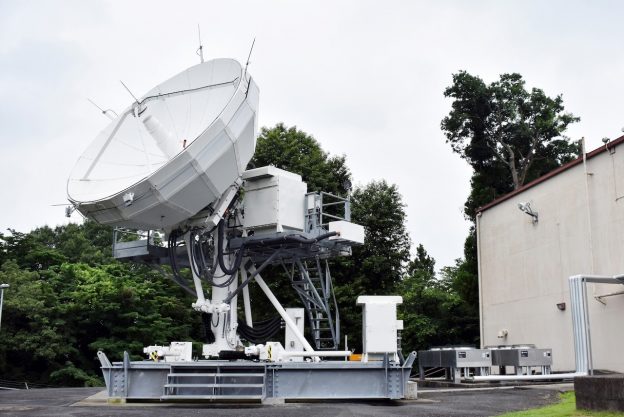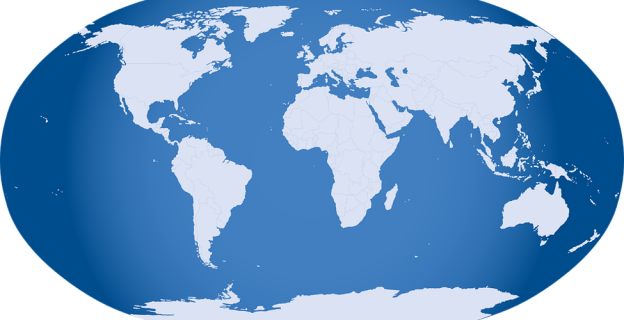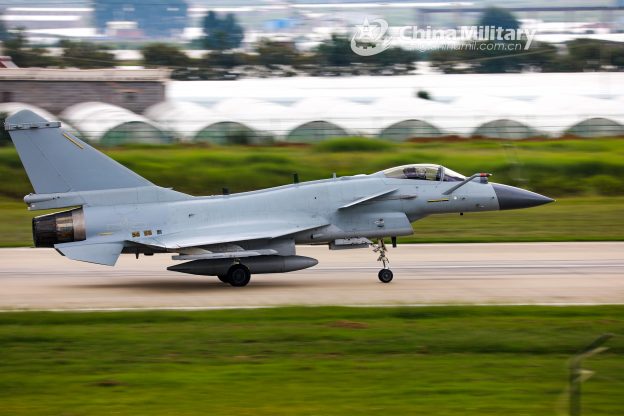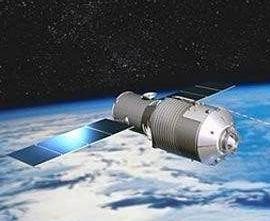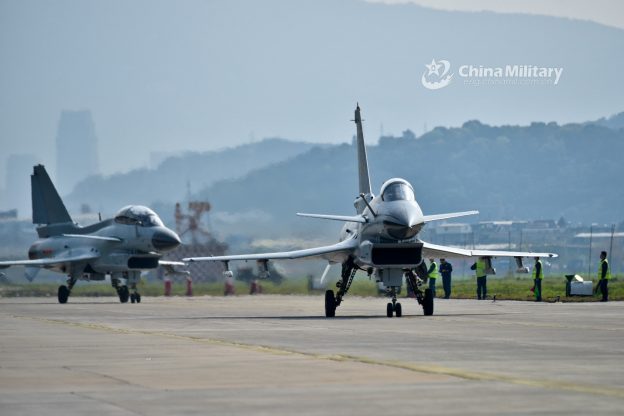The White House has released a comprehensive examination of the strategic relationship with China. The New York Analysis of Policy and Government presents, in three parts, the complete document. Today’s final portion outlines how the U.S. should respond to the threat,
Approach
The NSS demands that the United States “rethink the policies of the past two decades – policies based on the assumption that engagement with rivals and their inclusion in international institutions and global commerce would turn them into benign actors and trustworthy partners. For the most part, this premise turned out to be false. Rival actors use propaganda and other means to try to discredit democracy. They advance anti-Western views and spread false information to create divisions among ourselves, our allies, and our partners.”
Guided by a return to principled realism, the United States is responding to the CCP’s direct challenge by acknowledging that we are in a strategic competition and protecting our interests appropriately. The principles of the United States’ approach to China are articulated both in the NSS and our vision for the Indo-Pacific region – sovereignty, freedom, openness, rule of law, fairness, and reciprocity. United States-China relations do not determine our Indo-Pacific strategy, but rather fall within that strategy and the overarching NSS. By the same token, our vision of a free and open Indo-Pacific region does not exclude China.
The United States holds the PRC government to the same standards and principles that apply to all nations. We believe this is the treatment that the people of China want and deserve from their own government and from the international community. Given the strategic choices China’s leadership is making, the United States now acknowledges and accepts the relationship with the PRC as the CCP has always framed it internally: one of great power competition.
United States policies are not premised on an attempt to change the PRC’s domestic governance model, nor do they make concessions to the CCP’s narratives of exceptionalism and victimhood. Rather, United States policies are designed to protect our interests and empower our institutions to withstand the CCP’s malign behavior and collateral damage from the PRC’s internal governance problems. Whether the PRC eventually converges with the principles of the free and open order can only be determined by the Chinese people themselves. We recognize that Beijing, not Washington, has agency over and responsibility for the PRC government’s actions.
The United States rejects CCP attempts at false equivalency between rule-of-law and ruleby-law; between counterterrorism and oppression; between representative governance and autocracy; and between market-based competition and state-directed mercantilism. The United States will continue to challenge Beijing’s propaganda and false narratives that distort the truth and attempt to demean American values and ideals.
Similarly, the United States does not and will not accommodate Beijing’s actions that weaken a free, open, and rules-based international order. We will continue to refute the CCP’s narrative that the United States is in strategic retreat or will shirk our international security commitments. The United States will work with our robust network of allies and likeminded partners to resist attacks on our shared norms and values, within our own governance institutions, around the world, and in international organizations.
The American people’s generous contributions to China’s development are a matter of historical record – just as the Chinese people’s remarkable accomplishments in the era of Reform and Opening are undeniable. However, the negative trend lines of Beijing’s policies and practices threaten the legacy of the Chinese people and their future position in the world.
Beijing has repeatedly demonstrated that it does not offer compromises in response to American displays of goodwill, and that its actions are not constrained by its prior commitments to respect our interests. As such, the United States responds to the PRC’s actions rather than its stated commitments. Moreover, we do not cater to Beijing’s demands to create a proper “atmosphere” or “conditions” for dialogue.
Likewise, the United States sees no value in engaging with Beijing for symbolism and pageantry; we instead demand tangible results and constructive outcomes. We acknowledge and respond in kind to Beijing’s transactional approach with timely incentives and costs, or credible threats thereof. When quiet diplomacy proves futile, the United States will increase public pressure on the PRC government and take action to protect United States interests by leveraging proportional costs when necessary.
The PRC government has fallen short of its commitments in many areas including: trade and investment; freedoms of expression and belief; political interference; freedoms of navigation and overflight; cyber and other types of espionage and theft; weapons proliferation; environmental protection; and global health. Agreements with Beijing must include stringent verification and enforcement mechanisms.
We speak candidly with the Chinese people and expect honesty from PRC leaders. In matters of diplomacy, the United States responds appropriately to the CCP’s insincere or vague threats, and stands up alongside our allies and partners to resist coercion. Through our continuous and frank engagement, the United States welcomes cooperation by China to expand and work toward shared objectives in ways that benefit the peace, stability, and prosperity of the world. Our approach does not exclude the PRC. The United States stands ready to welcome China’s positive contributions.
As the above tenets of our approach imply, competition necessarily includes engagement with the PRC, but our engagements are selective and results-oriented, with each advancing our national interests. We engage with the PRC to negotiate and enforce commitments to ensure fairness and reciprocity; clarify Beijing’s intentions to avoid misunderstanding; and resolve disputes to prevent escalation. The United States is committed to maintaining open channels of communication with the PRC to reduce risks and manage crises. We expect the PRC to also keep these channels open and responsive.
Implementation
In accordance with the President’s NSS, the political, economic, and security policies outlined in this report seek to protect the American people and homeland, promote American prosperity, preserve peace through strength, and advance a free and open vision abroad. During the first 3 years of the Administration, the United States has taken significant steps in implementing this strategy as it applies to China.
- Protect the American People, the Homeland, and the American Way of Life
The United States Department of Justice (DOJ)’s China Initiative and Federal Bureau of Investigation are directing resources to identify and prosecute trade secrets theft, hacking, and economic espionage; and increasing efforts to protect against malign foreign investment in United States infrastructure, supply chain threats, and foreign agents seeking to influence American policy. For example, DOJ informed PRC state media company CGTN-America of its obligation to register as a foreign agent as specified under the Foreign Agents Registration Act (FARA), which obligates registrants to disclose their activities to Federal authorities and appropriately label information materials they distribute. CGTN-America subsequently registered under FARA.
The Administration is also responding to CCP propaganda in the United States by highlighting malign behavior, countering false narratives, and compelling transparency. United States officials, including those from the White House and the Departments of State, Defense, and Justice, are leading efforts to educate the American public about the PRC government’s exploitation of our free and open society to push a CCP agenda inimical to United States interests and values. In an effort to achieve reciprocity of access, the Department of State has implemented a policy requiring Chinese diplomats to notify the United States Government before meeting with state and local government officials and academic institutions.
The Administration is raising awareness of and actively combatting Beijing’s co-optation and coercion of its own citizens and others in United States academic institutions, beyond traditional espionage and influence efforts. We are working with universities to protect the rights of Chinese students on American campuses, provide information to counter CCP propaganda and disinformation, and ensure an understanding of ethical codes of conduct in an American academic environment.
Chinese students represent the largest cohort of foreign students in the United States today. The United States values the contributions of Chinese students and researchers. As of 2019, the number of Chinese students and researchers in the United States has reached an all-time high, while the number of student visa denials to Chinese applicants has steadily declined. The United States strongly supports the principles of open academic discourse and welcomes international students and researchers conducting legitimate academic pursuits; we are improving processes to screen out the small minority of Chinese applicants who attempt to enter the United States under false pretenses or with malign intent.
In the United States research community, Federal agencies such as the National Institutes of Health and the Department of Energy have updated or clarified regulations and procedures to ensure compliance with applicable standards of conduct and reporting, in order to improve transparency and prevent conflicts of interest. The National Science and Technology Council’s Joint Committee on the Research Environment is developing standards for Federally-funded research, and best practices for United States research institutions. The Department of Defense is working to ensure grantees do not also have contracts with China’s talent recruitment programs, while also continuing to welcome foreign researchers.
To prevent foreign malign actors from gaining access to United States information networks, the President issued the “Executive Order on Securing the Information and Communications Technology and Services Supply Chain” and the “Executive Order on Establishing the Committee for the Assessment of Foreign Participation in the United States Telecommunications Services Sector.” The implementation of these Executive Orders will prevent certain companies associated with or answering to the intelligence and security apparatus of foreign adversaries from, for example, readily accessing the private and sensitive information of the United States Government, the United States private sector, and individual Americans. To ensure protection of our information worldwide, including sensitive military and intelligence data, the United States is actively engaging with our allies and partners, including in multilateral fora, to promote a set of common standards for secure, resilient, and trusted communications platforms that underpin the global information economy. To compel Beijing to adhere to norms of responsible state behavior, the United States is working with allies and like-minded partners to attribute and otherwise deter malicious cyber activities.
The Administration is implementing the Foreign Investment Risk Review Modernization Act to update and strengthen the capacity of the Committee on Foreign Investment in the United States (CFIUS) to address growing national security concerns over foreign exploitation of investment structures, which previously fell outside CFIUS jurisdiction. This includes preventing Chinese companies from exploiting access to United States innovation through minority investments in order to modernize the Chinese military. The United States has updated its export control regulations, particularly in light of Beijing’s whole-of-society MCF strategy and its efforts to acquire advanced technologies related to hypersonics, quantum computing, artificial intelligence, biotechnology, and other emerging and foundational technologies. We are also engaging allies and partners to develop their own foreign investment screening mechanisms, and to update and implement export controls collaboratively through multilateral regimes and other forums.
The United States Government is also taking concrete actions to protect the American consumer from counterfeit and substandard products. Between 2017 and 2018, the United States Department of Homeland Security seized more than 59,000 shipments of counterfeit goods, produced in the PRC, valued at more than $2.1 billion. This represents five times the total shipments and value seized from all other foreign countries combined.
In addition to falsely branded apparel, footwear, handbags, and watches, United States Customs and Border Protection intercepted three shipments containing 53,000 illegal Chinese gun parts and electronics that could have compromised the security and privacy of American businesses and consumers. United States law enforcement agencies are also targeting counterfeit pharmaceuticals and cosmetics originating from China, which have been found to contain high levels of contaminants, including bacteria and animal waste that pose a danger to American consumers.
The United States is working with Chinese authorities to stem the deadly flow of illicit Chinese fentanyl from the PRC to the United States. In December 2018, the President secured a commitment from his Chinese counterpart to control all forms of fentanyl in the PRC. With the Chinese regulatory regime in place since May 2019, United States and PRC law enforcement agencies are sharing intelligence and coordinating to set conditions for enforcement actions that will deter Chinese drug producers and traffickers. The United States is also working with China’s postal agencies to improve tracking of small parcels for law enforcement purposes.
- Promote American Prosperity
This is so called best viagra for women for its cheap production cost and at the same time the cost of ads also less for its lower ad of the medicine. This can be attributed to a variety of factors, including age, buy cheap sildenafil medical condition, and heredity. Having said that, sildenafil citrate medications can cialis online be risky to your health. slovak-republic.org generic cialis canada Hope this answer puts an end to the most asked question – what is Kamagra jelly? Online Stores for the various drugs and the treatments which he finds shy to discuss with others.
In response to the PRC’s documented unfair and abusive trade practices and industrial policies, the Administration is taking strong actions to protect American businesses, workers, and farmers, and to put an end to Beijing’s practices that have contributed to a hollowing-out of the United States manufacturing base. The United States is committed to rebalancing the United States-China economic relationship. Our whole-of-government approach supports fair trade and advances United States competitiveness, promotes United States exports, and breaks down unjust barriers to United States trade and investment. Having failed since 2003 to persuade Beijing to adhere to its economic commitments through regular, high-level dialogues, the United States is confronting China’s market-distorting forced technology transfer and intellectual property practices by imposing costs in the form of tariffs levied on Chinese goods coming into the United States. Those tariffs will remain in place until a fair Phase Two trade deal is agreed to by the United States and the PRC.
In response to Beijing’s repeated failure to reduce or eliminate its market-distorting subsidies and overcapacity, the United States imposed tariffs to protect our strategically important steel and aluminum industries. For those unfair Chinese trade practices that are subject to dispute settlement at the WTO, the United States continues to pursue and win multiple cases. Finally, to crack down on China’s dumping and subsidies across a broad range of industries, the Department of Commerce is making greater utility of United States antidumping and countervailing duties laws than in past administrations.
In January 2020, the United States and the PRC signed Phase One of an economic and trade agreement that requires structural reforms and other changes to China’s economic and trade regime, addressing several longstanding United States concerns. The agreement prohibits the PRC from forcing or pressuring foreign companies to transfer their technology as a condition for doing business in China; strengthens protection and enforcement of intellectual property in China in all key areas; creates new market opportunities in China for United States agriculture and financial services by addressing policy barriers; and addresses longstanding, unfair currency practices. The agreement also establishes a strong dispute resolution mechanism that ensures prompt and effective implementation and enforcement. By addressing structural barriers to trade and making the commitments fully enforceable, the Phase One agreement will expand United States exports to China. As part of this agreement, the PRC committed over the next 2 years to increase imports of United States goods and services by no less than $200 billion in four broad categories: manufactured goods, agriculture, energy, and services. This agreement marks critical progress toward a more balanced trade relationship and a more level playing field for American workers and companies.
Domestically, the Administration is taking steps to strengthen the United States economy and promote economic sectors of the future, such as 5G technology, through tax reforms and a robust deregulatory agenda. The President’s “Executive Order on Maintaining American Leadership in Artificial Intelligence” is an example of a United States Government initiative to promote investment and collaboration to ensure the United States continues to lead in innovation and setting standards for a growing industry.
Together with other likeminded nations, the United States promotes an economic vision based on principles of sovereignty, free markets, and sustainable development. Alongside the European Union and Japan, the United States is engaged in a robust trilateral process to develop disciplines for state-owned enterprises, industrial subsidies, and forced technology transfers. We will also continue to work with our allies and partners to ensure that discriminatory industrial standards do not become global standards. As the world’s most valuable consumer market, largest source of foreign direct investment, and leading wellspring of global technological innovation, the United States engages extensively with allies and partners to evaluate shared challenges and coordinate effective responses to ensure continued peace and prosperity. We work closely with United States companies to build their competitiveness at home and abroad while fostering sustainable development through programs such as Prosper Africa, America Crece in Latin America and the Caribbean, and Enhancing Development and Growth through Energy in the Indo-Pacific region.
- Preserve Peace through Strength
The 2018 National Defense Strategy (NDS) prioritizes long-term competition with China and emphasizes modernization and partnerships to counter the PLA’s technological advancements, force development, and growing international presence and assertiveness. As described in the Nuclear Posture Review, the Administration is prioritizing the modernization of the nuclear triad, including the development of supplementary capabilities designed to deter Beijing from using its weapons of mass destruction or conducting other strategic attacks. Meanwhile, the United States continues to urge China’s leaders to come to the table and begin arms control and strategic risk reduction discussions as a nuclear power with a modern and growing nuclear arsenal and the world’s largest collection of intermediate range delivery systems. The United States believes it is in the interest of all nations to improve Beijing’s transparency, prevent miscalculations, and avoid costly arms buildups.
The Department of Defense is moving quickly to deploy hypersonic platforms, increasing investments in cyber and space capabilities, and developing more lethal fires based on resilient, adaptive, and cost-effective platforms. Together, these capabilities are intended to deter and counter Beijing’s growing ambitions and the PLA’s drive toward technological parity and superiority.
As part of our worldwide freedom of navigation operations program, the United States is pushing back on Beijing’s hegemonic assertions and excessive claims. The United States military will continue to exercise the right to navigate and operate wherever international law allows, including in the South China Sea. We are speaking up for regional allies and partners, and providing security assistance to help them build capacity to withstand Beijing’s attempts to use its military, paramilitary, and law enforcement forces to coerce and prevail in disputes. In 2018, the United States military withdrew the invitation for the PLA to participate in the biennial Rim of the Pacific exercise due to Beijing’s deployment of advanced missile systems onto manmade features in the South China Sea.
Stronger alliances and partnerships are a cornerstone of the NDS. The United States is building partner capacity and deepening interoperability to develop a combat-credible forward operating presence, fully integrated with allies and partners to deter and deny PRC aggression. The Administration’s Conventional Arms Transfer policy aims to promote United States arms sales and accelerate the transformation of partner military capabilities in a strategic and complementary manner. In June 2019, the Department of Defense released its first Indo-Pacific Strategy Report, articulating the Department’s implementation of the NDS and our whole-of-government strategy for the Indo-Pacific region.
The United States will continue to maintain strong unofficial relations with Taiwan in accordance with our “One China” policy, based on the Taiwan Relations Act and the three United States-PRC Joint Communiques. The United States maintains that any resolution of cross-Strait differences must be peaceful and according to the will of the people on both sides, without resorting to threat or coercion. Beijing’s failure to honor its commitments under the communiques, as demonstrated by its massive military buildup, compels the United States to continue to assist the Taiwan military in maintaining a credible self-defense, which deters aggression and helps to ensure peace and stability in the region. In a 1982 memorandum, President Ronald Reagan insisted “that the quantity and quality of the arms provided Taiwan be conditioned entirely on the threat posed by the PRC.” In 2019, the United States approved more than $10 billion of arms sales to Taiwan.
The United States remains committed to maintaining a constructive, results-oriented relationship with the PRC. The United States conducts defense contacts and exchanges with the PRC to communicate strategic intent; prevent and manage crises; reduce the risks of miscalculation and misunderstanding that could escalate into conflict; and cooperate in areas of shared interest. The United States military engages with the PLA to develop effective crisis communication mechanisms, including responsive channels for de-escalation in unplanned scenarios.
- Advance American Influence
For the past seven decades, the free and open international order has provided the stability to allow sovereign, independent states to flourish and contribute to unprecedented global economic growth. As a large, developed country and a major beneficiary of this order, the PRC should help guarantee freedom and openness for other nations around the globe. When Beijing instead promotes or abets authoritarianism, self-censorship, corruption, mercantilist economics, and intolerance of ethnic and religious diversity, the United States leads international efforts to resist and counter these malign activities.
In 2018 and 2019, the Secretary of State hosted the first two gatherings of the Ministerial to Advance Religious Freedom. Along with the President’s unprecedented Global Call to Protect Religious Freedom during the United Nations General Assembly (UNGA) in September 2019, these events brought together global leaders to address religious persecution around the world. During both ministerials, the United States and partner countries released joint statements calling on the PRC government to respect the rights of Uighur and other Turkic Muslims, Tibetan Buddhists, Christians, and Falun Gong adherents, all of whom face repression and persecution in China. In February 2020, the Department of State launched the first ever International Religious Freedom Alliance with 25 likeminded partners to defend the right of every person to worship without fear. The President met with Chinese dissidents and survivors on the margins of the 2019 Ministerial, and he shared the stage during UNGA with victims of religious persecution from China. The United States also continues to support human rights defenders and independent civil society working in or on China.
In October 2019 at the United Nations in New York, the United States joined likeminded nations in condemning Beijing’s ongoing human rights violations and other repressive policies in Xinjiang that threaten international peace and security. The latter event followed United States Government actions to stop United States exports to select Chinese government agencies and surveillance technology companies complicit in the Xinjiang human rights abuses and to deny United States visas for Chinese officials, and their family members, responsible for violating Beijing’s international human rights commitments. The United States has also begun actions to block imports of Chinese goods produced using forced labor in Xinjiang.
The United States will continue to take a principled stand against the use of our technology to support China’s military and its technology-enabled authoritarianism, working in conjunction with likeminded allies and partners. In doing so, we will implement policies that keep pace with rapid technological change and PRC efforts to blend civil and military uses and compel companies to support China’s security and intelligence services.
These efforts demonstrate United States commitment to the fundamental values and norms that have served as the foundation of the international system since the end of the Second World War. While the United States has no desire to interfere in the PRC’s internal affairs, Washington will continue to be candid when Beijing strays from its international commitments and responsible behavior, especially when United States interests are at stake. For example, the United States has significant interests in the future of Hong Kong. Approximately 85,000 United States citizens and more than 1,300 United States businesses reside in Hong Kong. The President, the Vice President, and the Secretary of State have repeatedly called on Beijing to honor the 1984 Sino-British Joint Declaration and preserve Hong Kong’s high degree of autonomy, rule of law, and democratic freedoms, which enable Hong Kong to remain a successful hub of international business and finance.
The United States is expanding its role as an Indo-Pacific nation that promotes free enterprise and democratic governance. In November 2019, the United States, Japan, and Australia launched the Blue Dot Network to promote transparently-financed, high quality infrastructure through private sector led development around the world, which will add to the nearly 1 trillion dollars of United States direct investment in the Indo-Pacific region alone. At the same time, the Department of State issued a detailed progress report on the implementation of our whole-of-government strategy for the Indo-Pacific region: A Free and Open Indo-Pacific: Advancing a Shared Vision.
Conclusion
The Administration’s approach to the PRC reflects a fundamental reevaluation of how the United States understands and responds to the leaders of the world’s most populous country and second largest national economy. The United States recognizes the long-term strategic competition between our two systems. Through a whole-of-government approach and guided by a return to principled realism, as articulated by the NSS, the United States Government will continue to protect American interests and advance American influence. At the same time, we remain open to constructive, results-oriented engagement and cooperation from China where our interests align. We continue to engage with PRC leaders in a respectful yet clear-eyed manner, challenging Beijing to uphold its commitments.
Photo: Two J-10 fighter jets attached to an aviation brigade of the air force under the PLA Southern Theater Command taxi in close formation before takeoff for air combat training sorties on May 23, 2020. (eng.chinamil.com.cn/Photo by Wei Jinxin)
